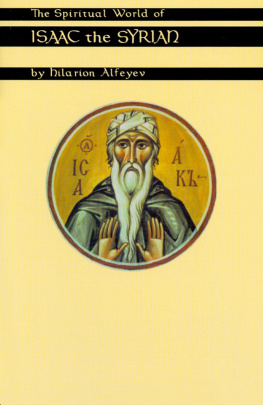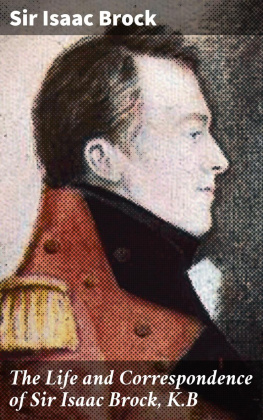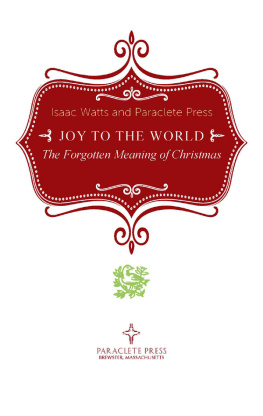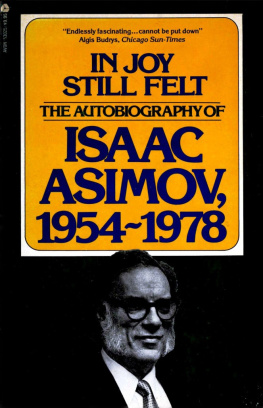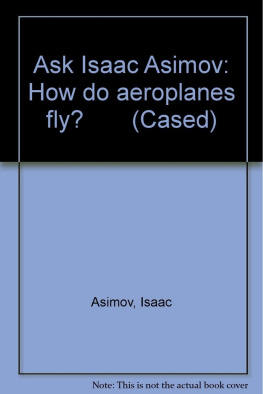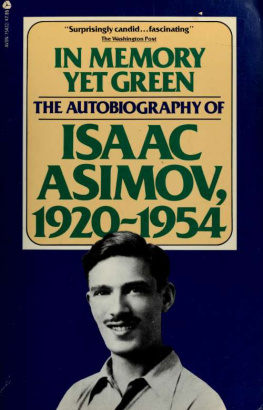
A Cistercian Publications title published by Liturgical Press
Cistercian Publications
Editorial Offices
Abbey of Gethsemani
3642 Monks Road
Trappist, Kentucky 40051
www.cistercianpublications.org
2000 by Cistercian Publications, Inc. 2008 by Order of Saint Benedict, Collegeville, Minnesota. All rights reserved. No part of this book may be reproduced in any form, by print, microfilm, microfiche, mechanical recording, photocopying, translation, or by any other means, known or yet unknown, for any purpose except brief quotations in reviews, without the previous written permission of Liturgical Press, Saint Johns Abbey, P.O. Box 7500, Collegeville, Minnesota 563217500. Printed in the United States of America.
For my teacher
Sebastian Brock
TABLE OF CONTENTS
FOREWORD
I CAN CLEARLY REMEMBER THE first time that I came across the name of Saint Isaac the Syrian. It was about forty years ago. In a popular anthology, next to a passage from Spinoza, I read these words from Isaac: What is a compassionate heart? It is a heart on fire for the whole of creation, for humanity, for the birds, for the animals, for demons, and for all that exists. Isaac goes on to speak of the tears shed by the person with the heart such as this, when confronted by the pain and anguish of any living thing: As a result of this deep mercy his heart shrinks and cannot bear to look on any injury or the slightest suffering of any in creation.
Who, I asked myself, is this Isaac who writes about compassion with such a powerful sense of cosmic unity? For the time being my curiosity remained unsatisfied; but Isaac the Syrian was a name that I resolved to keep in view.
I did not have to wait long before I met him again. Reading Vladimir Losskys master-work The Mystical Theology of the Eastern Church, I found Saint Isaac the Syrian mentioned on many pages. I was particularly struck by some words of Isaac, quoted by Lossky, about the suffering of those in hell. According to Isaac, those who endure torment in gehenna are chastised, not by divine anger, not by any desire on Gods part to exact retributionfor there is no cruelty or vindictiveness in Godbut with the scourge of love.
The sorrow which takes hold of the heart that has sinned against love is more piercing than any other pain. It is not right to say that sinners in hell are deprived of the love of God. But love acts in a double way, as suffering in the reproved, and as joy in the blessed.
Lossky comments: The love of God will be an intolerable torment for those who have not acquired it within themselves.
Once more, as with Isaacs description of the compassionate heart, it was as if someone had suddenly opened a window in my mind and flooded my whole interior world with light. Here, I felt, is the only interpretation of judgement and hell that makes any sense. God is love, and his love is inexhaustible; and this inexhaustible love is present everywhere, even in hell. But love acts in a double way.
A third stage in my encounter with Saint Isaac came when I read an article on Isaacs theology of the Incarnation by the Roman Catholic scholar Irne Hausherr.
Once again, Saint Isaacs words made immediate sense to me. The Incarnation is not to be seen merely as a contingency plan devised by God in response to the Fall; it is an I recognized, however, that Isaac was not actually raising the later scholastic question, Would the Incarnation have occurred, even if there had never been a Fall into sin? For us this is an unreal question, for the only world we know from personal experience is a fallen world, marked by sin; and the Fathers do not on the whole concern themselves with unreal questions. They do not ask, What would have happened if .; they theologize on the basis of our present situation. All that Saint Isaac affirms, therefore, with true patristic reticence, is that the motive for Gods flesh-taking is his divine love.
Running through all three of my initial encounters with Isaac was a single theme: the primacy of love. It is love that provides an explanationso far as any explanation is possiblefor the creation of the universe and for the Incarnation of Christ. It is love that enables us, as nothing else can do, compassionately to embrace and transfigure the suffering of the world. And it is the logic of divine love that provides a key to the dark mystery of hell. What impressed me, moreover, was not simply the central place that Isaac assigns to love, but the directness, the simplicity, the intensity with which he speaks about Gods loving economy. Never before, outside Holy Scripture, had I found someone who could say so much in so few words.
Not long after these three meetings with Isaac, I came across the translation of his Mystic Treatises by A. J. Wensinck. This I read, sometimes with bafflement, but always with a consuming eagerness. I filled scores of filing cards with extracts from the text. When I came to the end of the work, even after four hundred pages I was left thirsty for more. From Wensincks preface and other works I learnt who Isaac was: a monk living in Mesopotamia in the seventh century, briefly bishop of Nineveh, and then in his final years a recluse in the mountains. I discovered that he belonged to the Church of the East, commonly called nestorian. But, so I gradually came to realize, this did not mean that either Isaac himself, or the ecclesiastical community to which he belonged, could justly be condemned as heretical.
My knowledge of Isaac had to be gathered, more than a generation ago, from many scattered sources. Now at last, to my great delight, we have at our disposal a single book in English, offering us a balanced and comprehensive overview of Isaacs life, background and teaching. Wisely Fr Hilarion Alfeyev has allowed Isaac to speak for himself. The book is full of well-chosen quotations, in which Isaacs true voice can be plainly heard. Fr Hilarion has had the great advantage of being able to make use of the second part of Isaacs writings which was long feared to have been lost, but which has now been rediscovered and made available by Dr Sebastian Brock.
I do not wish to count milestones, but to enter the marriage chamber, says Isaac; any path that quickly takes me there I will travel on. His words can be applied to his own writings. He does not offer milestones, or spiritual maps, or a carefully devised plan of the christian journey in specific stages. He is intuitive and unsystematic. His writings are full of repetitions, of unexpected transitions, of epigrammatic sayings not fully explained. Yet, beneath this apparent lack of system, there is in his spiritual teaching a profound inner coherence; and it is precisely this that Fr Hilarion makes clear to us. Drawing together Isaacs key statements on the life in Christ, the present book shows us the unity and consistency that marks his spiritual vision.
Saint Isaac the Syrian was an ascetic, a mountain solitary, but his writings are universal in scope. They are addressed not just to the desert but to the city, not just to monastics but to all the baptized. With sharp vividness he speaks about themes relevant to every Christian: about repentance and humility, about prayer in its many forms, both outer and inner, about solitude and community, about silence, wonder, and ecstasy. Along with the emphasis that he places upon luminous loveto use his own phrasetwo things above all mark his spiritual theology: his sense of God as living mystery; and his warm devotion to the Saviour Christ.
When the fourteenth-century hesychast master Saint Gregory of Sinai was advising his disciples about what to read, he selected Isaac for special mention: Read works of the Fathers related to stillness and prayer, like those of Saint John Climacus, Saint Isaac, Saint Maximos . Readers of Fr Hilarions book will easily appreciate why Gregory of Sinai and Ivan Kireevsky felt as they did.
Next page
